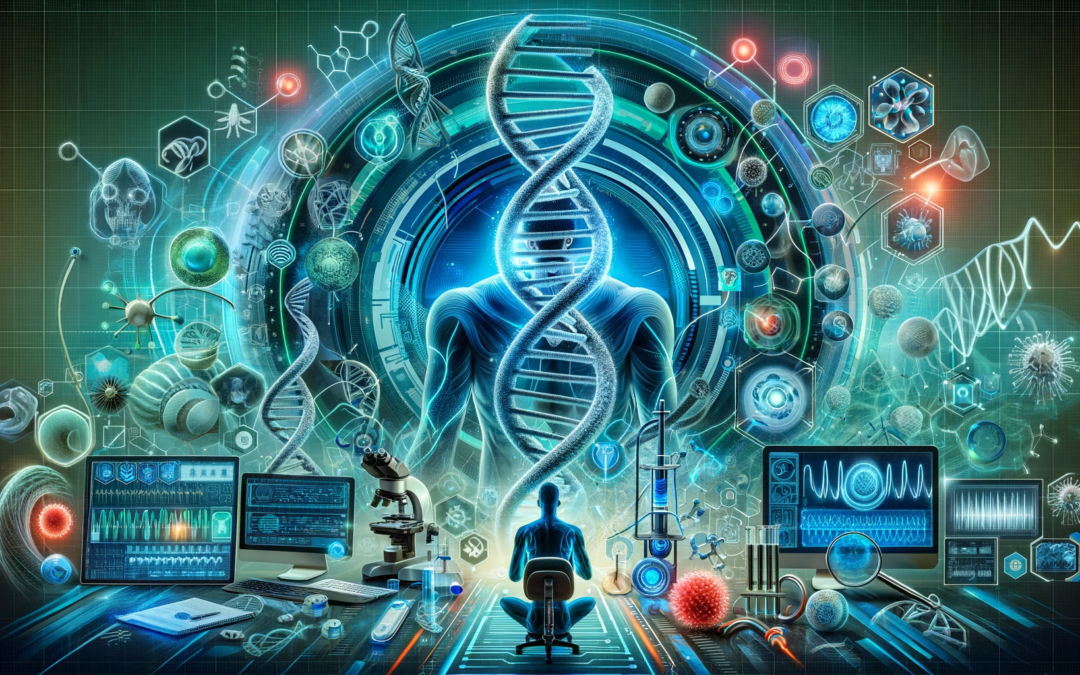Welcome to our blog post on the fascinating intersection of AI and precision medicine! In this article, we will explore how AI is revolutionizing the medical field by enabling more accurate diagnostics, tailored treatment plans, and individualized patient care. Get ready to dive into the exciting world where technology meets healthcare!
Introduction
Traditional healthcare practices have often relied on a one-size-fits-all approach, but the tide is turning towards personalized medicine. With the help of AI, we are witnessing a paradigm shift in healthcare delivery and outcomes. Let’s delve into the ways AI is transforming precision medicine and personalized healthcare.
AI in Diagnostics and Predictive Analysis
AI is a game-changer in diagnostic accuracy. It can analyze vast amounts of medical data and detect patterns that human eyes might miss. From interpreting medical imaging to predicting health risks based on genetic and lifestyle factors, AI is paving the way for more accurate diagnoses. For instance, AI-driven diagnostic tools have significantly improved patient outcomes in various fields.
AI in Treatment Personalization and Drug Development
Personalized treatment plans are becoming a reality, thanks to AI. In oncology, AI is playing a crucial role in tailoring cancer treatments based on individual patient characteristics. Additionally, AI is revolutionizing drug development by analyzing complex genomic data and identifying potential drug candidates. Breakthroughs in treatment and drug development are being made possible by harnessing the power of AI.
AI in Patient Monitoring and Care Management
AI is not only transforming diagnostics and treatment but also patient monitoring and care management. With continuous patient monitoring and AI-powered health data management, healthcare providers can take a more proactive approach to patient care. AI tools are also playing a vital role in managing chronic conditions and improving patient engagement by providing personalized insights and recommendations.
AI in Clinical Research and Trials
Clinical research and trials are being revolutionized by AI. From selecting patients for trials to analyzing vast amounts of data, AI-driven approaches are making the process more efficient and effective. The integration of AI in clinical research is opening new avenues for breakthrough discoveries and accelerating the development of life-saving treatments.
Challenges and Ethical Considerations
While AI holds immense potential in healthcare, it also comes with its fair share of challenges and ethical considerations. Data privacy, algorithmic bias, and equitable access to AI-driven care are just a few of the issues that need to be addressed. Responsible and ethical AI implementation is crucial to ensure that the benefits of AI in healthcare are accessible to all and that patient trust is maintained.
The Future of AI in Precision Medicine
The future of AI in precision medicine is both exciting and thought-provoking. As technology continues to advance, we can expect even more significant advancements in personalized healthcare. How will AI shape the healthcare industry in the long run? What impact will it have on patient outcomes and overall healthcare delivery? These are questions that we must explore as we embrace the potential of AI.
Engaging with the Audience
We would love to hear from you! Share your thoughts or experiences with AI-driven healthcare services or precision medicine in the comments section below. Let’s spark meaningful discussions about the potential benefits and challenges of integrating AI into healthcare.
Conclusion
AI is revolutionizing precision medicine and personalized healthcare, paving the way for a new era of patient-centric and data-driven medical care. By leveraging the power of AI, we can achieve more accurate diagnostics, tailored treatment plans, and improved patient outcomes. Let’s embrace the possibilities of AI while ensuring responsible and ethical implementation in healthcare.










